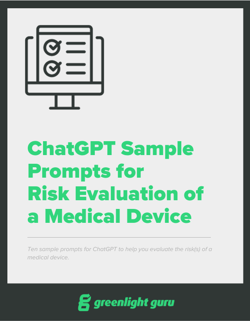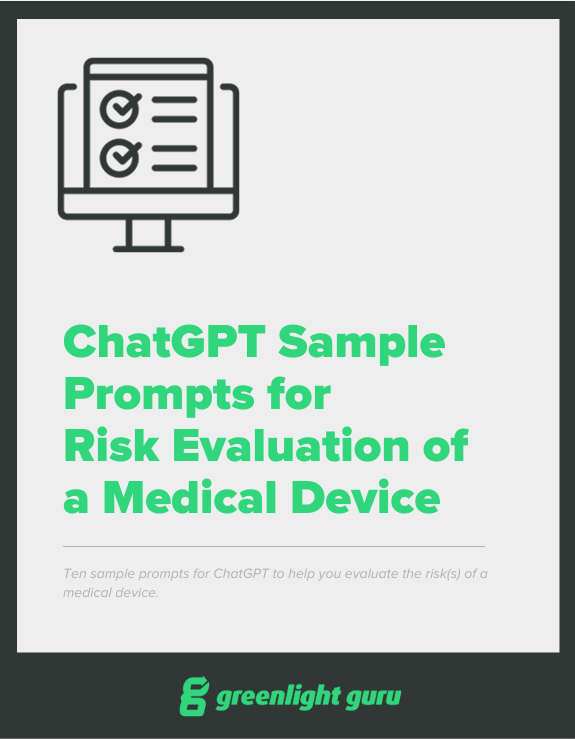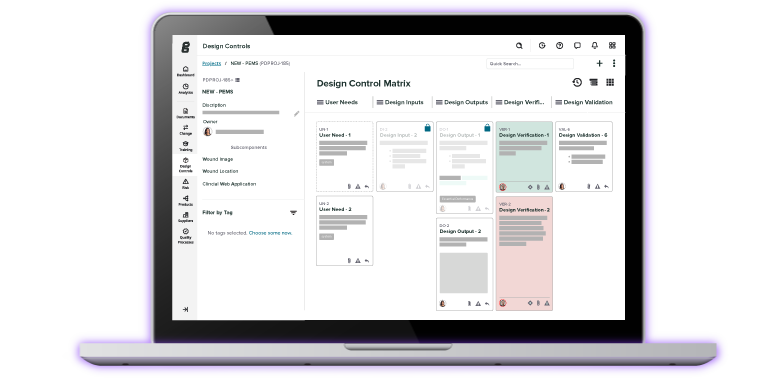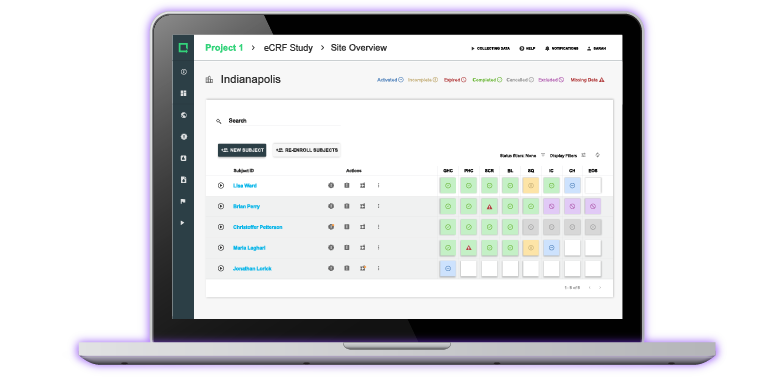Adopting AI in Quality Management: Practical Solutions for the MedTech Industry

In MedTech, an increasing number of companies are introducing devices integrated with AI technologies. However, the opportunities for AI in our industry aren’t limited to the products we place on the market.
There’s still enormous potential to incorporate AI into the tools we use to help design, develop, manufacture, and monitor those devices. The use of AI in quality management could free up huge amounts of time and energy within MedTech companies, but we’re still in the early days of AI integration.
According to the 2024 State of the MedTech Industry Report, 71% of participants acknowledge the need for companies to adopt AI solutions for competitive advantage.. They know it, but most of them haven’t taken significant steps to experiment with or adopt AI tools.
So let’s take a look at where we’re already seeing AI put to use in quality management—and how those use cases will continue to evolve.
What are the use cases for AI in quality management?
As we start to integrate AI into quality management systems, it’s fair to wonder what we can expect from adding AI technologies into the processes and procedures that govern product design and development.
In the 2024 State of the MedTech Industry Report, respondents believed AI to be most useful in research and analysis. Consider:
-
76% of respondents said AI would be useful or very useful in gathering and analyzing market data
-
71% said AI would be useful or very useful in analyzing business system data
These responses are picking up on the trends and use cases we’ve seen so far in the industry. And while data analysis is a major use case for AI in quality management, it’s not the only way we’ll see new AI-powered solutions changing the way MedTech works.
Here are the three areas where AI-powered solutions will make a difference in quality management:
1. Data analysis and predictions
AI solutions do tend to excel in the real-time monitoring and analysis of complex datasets. It’s no coincidence that respondents from the 2024 State of MedTech Report were most interested in using AI for data analysis.
Whether it’s market data, clinical data, or internal data from quality events, training, or documentation, AI can be used to analyze huge amounts of data—and make recommendations and predictions based on that analysis. For instance:
- When an employee is updating a specific document, AI can intelligently identify and suggest similar modifications in related documents, enhancing consistency and efficiency.
- By analyzing trends between approvers and nonconformances, the AI could provide suggestions for additional oversight or a reduction in oversight depending on the number of nonconformances associated with each individual.
- AI could also be used in training to analyze responses in quizzing and create recommendations on how the training program should evolve.
2. Easing the regulatory burden
AI solutions in quality management significantly reduce the regulatory burden, improving processes for both individual employees and the organization as a whole. Streamlining documentation, making recommendations based on regulatory databases and standards, and even simulating audit scenarios can help companies stay compliant and also make smart decisions regarding regulatory pathways and submissions.
This isn’t just speculation, either. At Greenlight Guru, our Risk Intelligence solution combines advanced statistical models and massive amounts of real-world adverse event data to identify and predict the most relevant hazards and patient harms—with estimated probabilities and severities—for a device.
3. Automations to free up time and energy
It’s true that most QMS software already comes with automations, such as notifying an individual when a document is ready for their review. But simple automations are one thing; traditional automated systems can’t handle a high level of non-determinism (meaning inputs that are less structured or more random).
As Tyler Foxworthy, Chief Scientist at Greenlight Guru, has pointed out, AI exists on a continuum with automation. “Once you reach a certain level of complexity, leveraging AI to handle the analysis becomes the most efficient solution because writing a deterministic software program to accomplish the task becomes intractably complex because of the number of steps and branching logic involved.”
By automating more complex or less deterministic tasks, AI solutions can reduce human error in mundane and repetitive tasks (that we tend to be bad at), and free us up for the value-added work that really makes a difference.
As one respondent from the 2024 State of MedTech Report said, “I am hopeful that AI can automate some of the more simple, mundane and routine tasks (like data collection and drafting simple summary reports), so that I can focus on tasks that truly require and utilize my expertise.”
What to consider when integrating AI into quality management systems
A respondent from the 2024 State of MedTech Report reveals a common fear regarding AI integration:
“I feel like there is a probability that the use of AI will devalue the knowledge and skills brought by the individuals to the organization.”
As with any new technology, heavy-handed and generic solutions can end up harming employee performance and causing more headaches than they solve. That’s why it’s important to evaluate not just the problem that needs to be solved, but how an AI-integrated solution will solve it.
At Greenlight Guru, our software has always been built specifically for the MedTech industry. For more than a decade, we’ve been laser-focused on providing solutions that help MedTech companies modernize quality management, accelerate design and development, and keep up with industry changes as they deliver high-quality devices to market.
From Risk Intelligence to Digital Guru, and future innovations, Greenlight Guru consistently ensures that the integration of AI in our products is purposeful, customer-centric, and aligned with regulatory standards and industry best practices.
Learn more about how Greenlight Guru is moving MedTech forward, and get your free demo of our software today →
Etienne Nichols is the Head of Industry Insights & Education at Greenlight Guru. As a Mechanical Engineer and Medical Device Guru, he specializes in simplifying complex ideas, teaching system integration, and connecting industry leaders. While hosting the Global Medical Device Podcast, Etienne has led over 200...
Related Posts
The Trouble with Home-Use Devices, Pt. 1
AAMI TIR45: Closing the Gap Between Agile Software Development & Medical Device Regulations
4 Letter to File Mistakes That Could Cost You
Get your free PDF download
ChatGPT Sample Prompts for Risk Evaluation of a Medical Device










